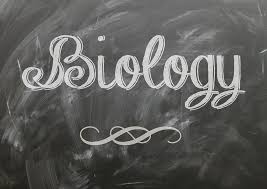Biology -Nutrition
Nutrition- The study of food is called Nutrition.
Carbohydrates, Fats Proteins, Vitamins, Minerals, Fibre and Water are the 7 basic food substances that are ‘Basic Nutrients’.
Proteins- Substances made up of carbon, hydrogen, oxygen, nitrogen and sometimes sulphur. Used for growth and repair or tissue.
Fats- Made up of fatty acids and glycerol; another bulk material found in food.
Carbohydrates- 1 of the bulk material of which food is made of. An organic substance from which the body gets energy.
Minerals- Important substances needed in small quantities to prevent illnesses.
Vitamins- Organic substances needed in small amounts by the body. Some are coenzymes and other help to prevent illnesses.
Fibre- An insoluble, non-digested substance used to sweep out undigested food out of the body; roughage
Water- Very important chemical; the most abundant compound in the Universe and in the body.
Glucose- C6H12O6 Final product of digestion of carbohydrates.
Sugars- Carbohydrates used to get energy.
Fructose- A sugar found in fruit.
Maltose- Found in barley grains.
Lactose- Found in milk.
Sucrose- Table sugar.
Starch- It is an insoluble polysaccharide. These are found in bread, potatoes, rice and cereals. A chemical used by plants to store food.
Monosaccharides- Sugars with one glucose molecule. Fructose is also a monosaccharides.
Disaccharides- Sugars with more than one glucose molecule attached together by bonds.
Polysaccharide- Three or more sugar molecules are bonded together; insoluble.
Glycogen- The chemical used by animals to store food.
Glycerol- Part of the fat molecule.
Amino Acid- The final product of digestion of proteins.
Fatty acid- There are 3 fatty acids in a fat molecule.
Peptide bonds- The bond by which amino acids are attached.
Dipeptide- 2 amino acids attached together by peptide bonds.
Polypeptides- 3 or more amino acids attached together by peptide bonds.
Peptide Bonds- Bonds attaching amino acids together to form dipeptides and polypeptides.
(Visited 44 times, 1 visits today)
